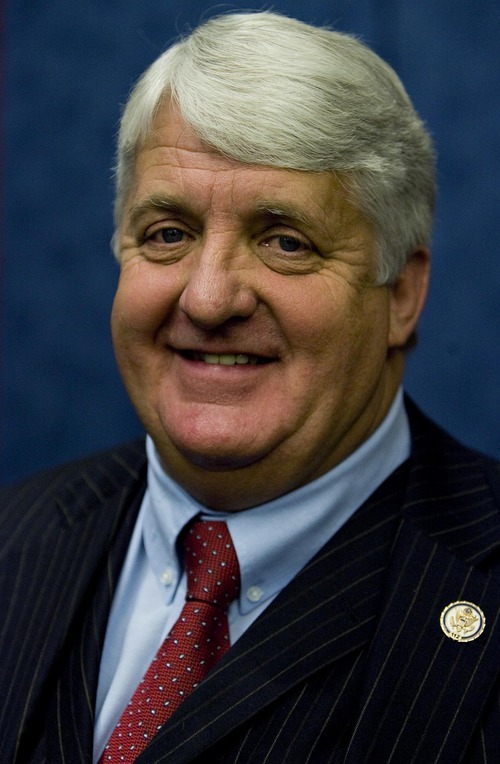This is an archived article that was published on sltrib.com in 2011, and information in the article may be outdated. It is provided only for personal research purposes and may not be reprinted.
Washington • A new Interior Department report says more than half the public lands leased to oil and gas companies are sitting idle while the industry and congressional critics are clamoring to open more federal swaths for exploration.
But Rep. Rob Bishop, R-Utah, who heads a House subcommittee over public lands, says those numbers are bunk and blasted Interior for playing politics with America's energy sector.
The report, requested by President Barack Obama, shows that of the 38 million onshore acres leased for production, almost 22 million of them are not currently being used. The news comes as the administration presses for ways to charge companies that do not produce on leased lands.
"These are resources that belong to the American people, and they expect those supplies to be developed in a timely and responsible manner and with a fair return to taxpayers," Interior Secretary Ken Salazar said Tuesday in a statement. "As we continue to offer new areas onshore and offshore for leasing, as we have done over the last two years, we will also be exploring ways to provide incentives to companies to bring production online quickly and safely."
Interior's report says production on federal lands has decreased — even though the department has continued to lease lands to oil and gas companies.
Bishop, still angry about Salazar's decision to shelve 77 oil and gas leases in Utah issued in the waning days of the Bush administration, called the report a "rhetorical sleight of hand."
"It's like political gamesmanship to distract from the important conversation," Bishop said. "Everything about this is just plain ludicrous."
Bishop says companies don't make money sitting on nonproducing land and have every incentive to seek oil resources, though, as everyone in the "real world" understands, not every acre produces oil.
The real crime, he notes, is the bureaucratic red tape that holds up oil and gas exploration once a lease has been handed out. A lease doesn't immediately give a company the authority to drill, he said, and Interior is slow to approve that step.
Bishop plans to introduce legislation this week that would order Interior to reissue those canceled Utah leases as well as lease lands in the Outer Continental Shelf — which have been put on hold in the wake of the Gulf of Mexico oil spill. The measure also would force the Environmental Protection Agency to issue permits for exploration off the coast of Alaska.
Kathleen Sgamma, director of government and public affairs for the Colorado-based Western Energy Alliance, said the Interior report provides little new information and ignores Interior's own role in holding up development.
"Our public land managers should know that obtaining a lease is just the first step in a lengthy process filled with bureaucratic hurdles," Sgamma said. "If this administration was serious about domestic energy production from federal lands, it would ease some of the redundant red tape that is preventing companies from developing leases they currently hold."
But Matt Garrington, deputy director of the Checks & Balances Project, also a Colorado group, said the report clears up the muddled debate about drilling on public lands.
"The simple truth is approval rates for drilling permits are up, and industry lays idle hands on over 21 million acres of public lands," Garrington said. "We should put an end to Big Oil's speculation on our public lands and continue to move forward with responsible energy development."



